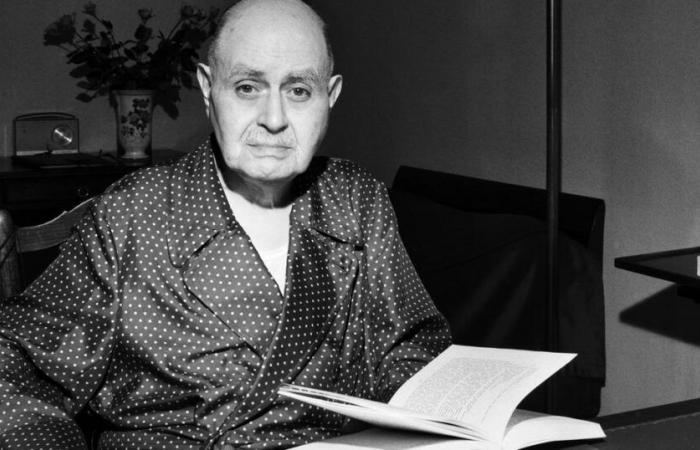Writer, poet and playwright, Albert Cohen has always maintained contrasting relationships with the city of Calvin. A collective of historians from the University of Geneva publishes a literary guide in the form of walks to highlight the importance of the city for the author of “Belle du Seigneur”.
As specified in the introduction to the guide “Albert Cohen and Geneva” (ed. La Baconnière), rich in illustrated notices, maps or documents unpublished and unused to date, Albert Cohen (1895-1981), Sephardic Jew native of Corfu, experienced anti-Semitism from childhood: first in Greece where he was forced into exile with his family after a pogrom, then in Marseille where a peddler called him a dirty yip.
At the dawn of the First World War, he moved to Geneva as a foreign student where he successfully pursued law studies. Through contact with Russian Jews, he became a convinced Zionist activist. If Geneva rejects his request for naturalization, the canton of Aargau is less careful.
There is a whole critical apparatus, because we based ourselves on different sources. We looked for innovative and new things.
He led most of his life in Switzerland with the exception of three parentheses, first at the beginning of the 1920s in Alexandria in Egypt, the cradle of a deep disillusionment and depression which gave him the impetus for writing, then in Paris in the 1930s where he published his first novel “Solal” to stunning critical success, and finally in London during the war, where he displayed his talents as a diplomat.
>> To consult, the RTS Archives file dedicated to Albert Cohen: The words of Albert Cohen
Twenty-nine emblematic places
On the death of the author of “Belle du Seigneur”, a prolific work published in 1968 and Grand Prix du roman de l’Académie française, La Tribune de Genève carried the headline: “The greatest Genevan writer since Jean Jacques Rousseau wrote went on October 17, 1981. Geneva? Really? However, in La Pléiade, Geneva is barely mentioned even though Albert Cohen lived there for nearly fifty years. Furthermore, no trace of posterity appears in Geneva’s public space with the exception of a modest street.
The little rue Albert Cohen allows us to talk about the place it occupies in Geneva’s collective memory, rather small if its appearance is to be believed.
It didn’t take much for researchers from the University of Geneva to do in-depth work to prove the importance of this city for Albert Cohen. Thus the literary stroll focuses on twenty-nine emblematic places, recalling their history but above all their link with the author. In the light of this guide, there is no longer any doubt that Geneva was a character in its own right in his work and his life, much more than an element of decor, and this despite the ambivalent relationships he had with her from his lifetime.
Philippe Congiusti/sf
“Albert Cohen et Genève”, de Pierre-Louis Chantre, Marie-Luce Desgrandchamps, Idit Ezrati Lintz, Thierry Maurice, Bruno Racalbuto, Noémie Sakkal Miville, Yan Schubert, ed. La Baconnière, November 2024.
Do you like to read? Subscribe to QWERTZ and receive this newsletter every Friday dedicated to book news prepared by RTS Culture.






